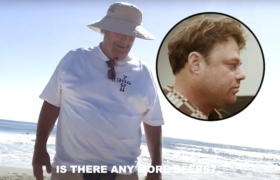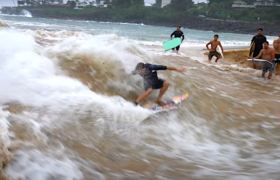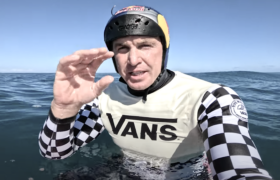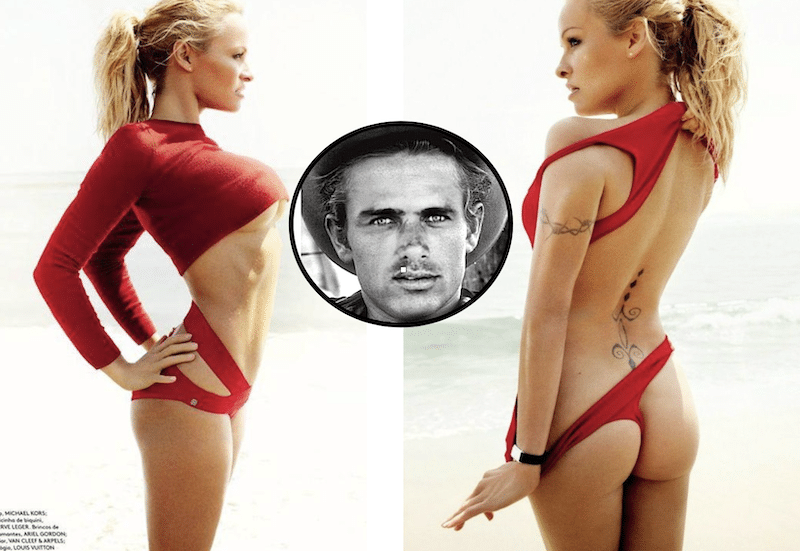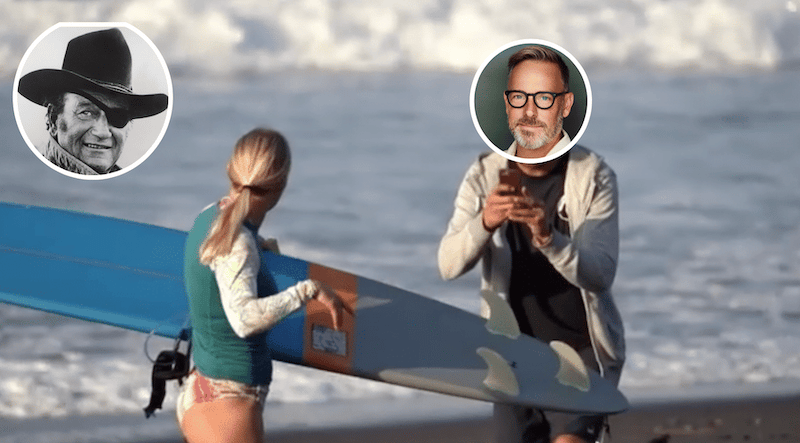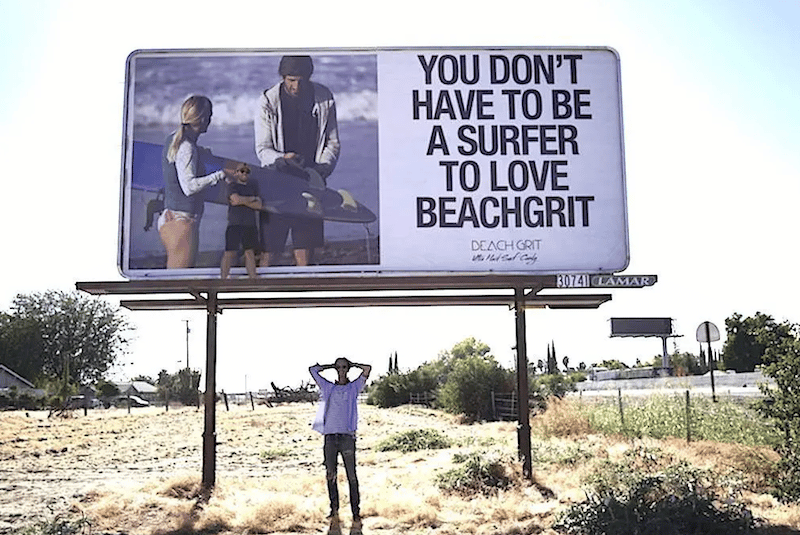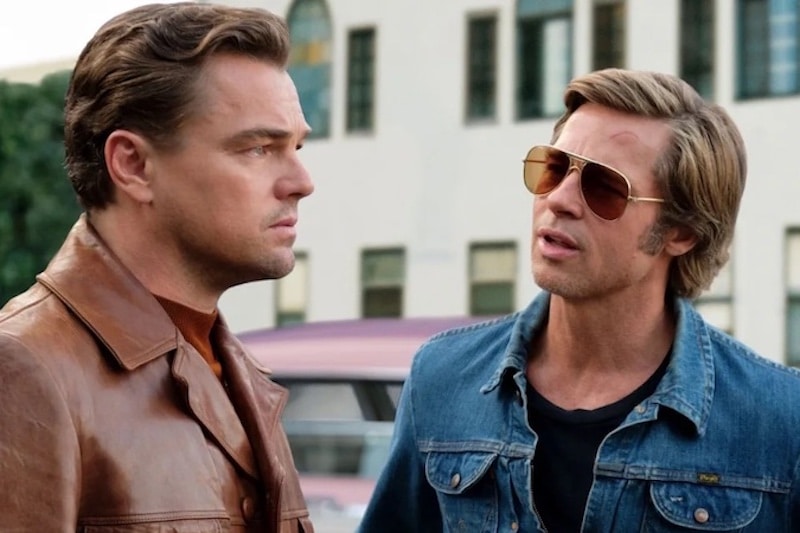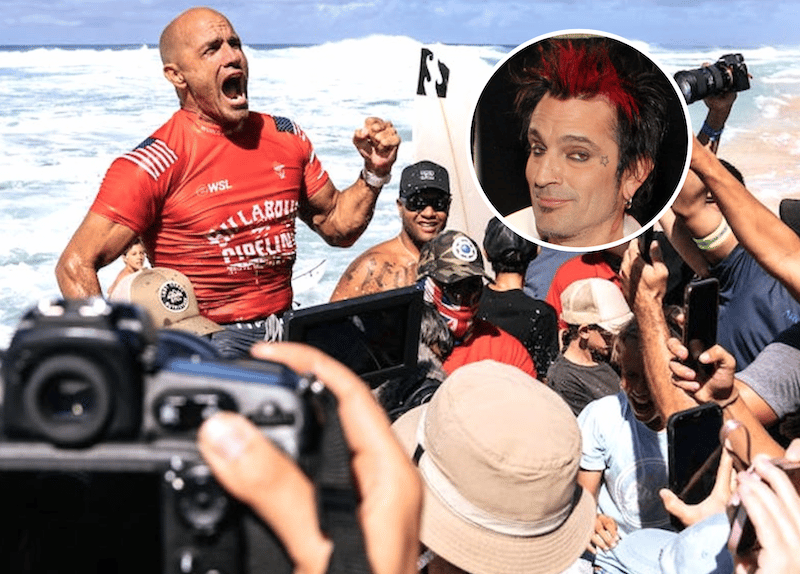"When I hear people debating where trans folks belong in sports, my first thought isn't sports. It's suicide."
I have known Jamie Tworkowski for a decade-adjacent now and don’t think that I’ve ever met a kinder man. The handsome Floridian was, and still is, a ripping surfer who got his professional start in the august role of brand rep for Hurley, if I’m not mistaken, on America’s east coast and worked for years before finding a better calling in helping folk not end their lives prematurely.
To Write Love on Her Arms, which Tworkowski founded in 2006, is a non-profit that seeks “to present hope for people struggling with addiction, depression, self-injury and thoughts of suicide, while also investing in treatment and recovery.” Later, he wrote the best-selling If You Feel Too Much (buy here) and, today, travels the globe speaking on various important issues.
In any case, he took to social media in the aftermath of Bethany Hamilton, and other surf legends, coming out swinging against the World Surf League’s new trans-inclusive policy and presents another side worth pondering.
Without further ado…
Food for thought: There is no crisis when it comes to transgender folks dominating sports. There is however a crisis when it comes to suicide rates among transgender and non-binary individuals. To those saying “Just give them their own division,” as someone else pointed out, “othering” someone is the first step to dehumanizing them. Which brings us back to the actual crisis: Transgender human beings dying by suicide because of the ignorance, judgement, and hate they experience day after day. So my question is this. Which bothers you more: The purely hypothetical crisis that trans folks are coming to take over the women’s tour? Or the possibility that a living breathing transgender human being, hoping for love and acceptance, would read these comments and feel like even more of an outsider? The tour likely won’t change. But if the surfing community would stop with the fear and actually consider a picture bigger than this bullshit culture war, we could not only change but save lives. And to the Christians reading this, I’m pretty sure Jesus was a big fan of love. And love is very interested in things like seeing people want to stay alive.
…and then…
I’ve avoided this platform since last night. Haven’t looked at comments or DMs. I don’t love politics. I don’t enjoy conflict, especially with friends. I don’t enjoy being insulted.
I’m aware that some of my opinions are unpopular in the surfing community. But last night I chose to say something.
I grew up a surfer and spent the first eight years of my career working in the surf industry. I’ve spent the last 16 years working in mental health and suicide prevention. I’ve learned that suicide rates among LGBTQ folks are exponentially higher than the average. I’ve learned that words matter, always but especially when someone is struggling. I’ve learned that kindness and compassion can save a life.
So when I hear people debating where trans folks belong in sports, my first thought isn’t sports. It’s suicide. It’s belonging. It’s wanting people to want to stay alive. It’s wanting people to experience the joy I’ve found in surfing and other parts of life.
Do I think sports should be fair? Yes. Am I an expert in that? No. But also I believe there’s a bigger picture: How can we care for folks who are already marginalized? While we debate, can we remember that we’re talking about human beings? Can we use language that is compassionate and kind?
If you’re a Christian can you try to keep in mind that this means you’re called to love and your faith suggests that every person alive is made in the image of God?
If for you the debate is about women’s rights, are you equally passionate about: A woman’s right to choose to become a mother? A woman’s right to marry another woman? Every woman’s right to seek asylum when fleeing violence and poverty?
None of this is about me being a hero or a saint, or having all the answers. But I want to be someone who cares about people.
And I think that has to mean paying special attention to how we treat those who exist in the margins of society. And I definitely want to live in a world where less people die by suicide.
To sum it all up, I believe there’s a way to have hard conversations where we simultaneously keep in mind that whether we agree or not, the words we choose make an impact on the real lives in the balance. Maybe it’s not only a conversation about where people belong in sports. Maybe it’s also a conversation about the fact that belonging is a powerful thing, the kind of thing that can change and even save a life.
